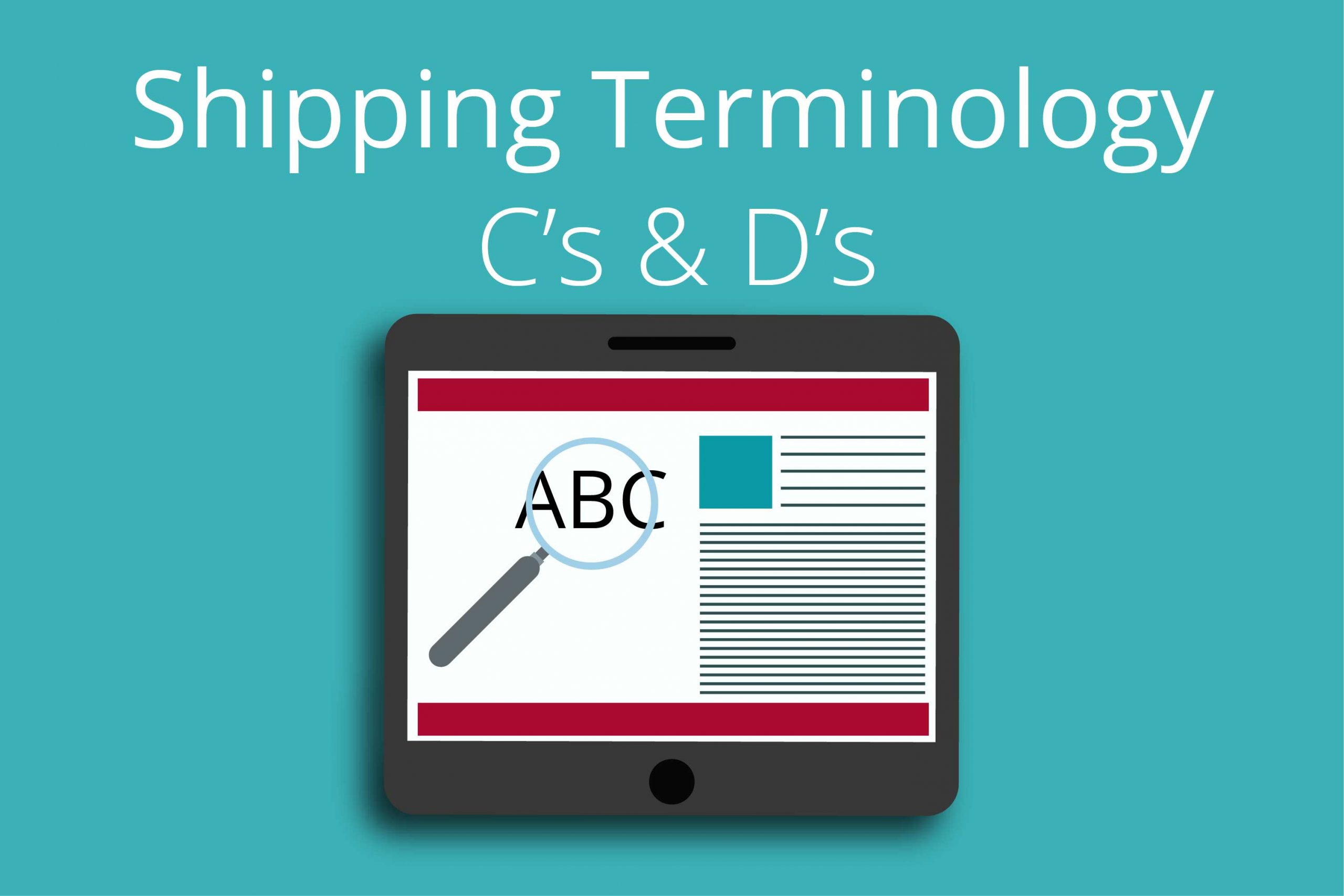To help you understand terms used in the shipping industry, whether familiar or not, we created an index of sorts with many useful shipping terms. We hope that these aid you in communicating, interpreting, and managing your business.
Carmack: An amendment that lists the rights, duties and liabilities of shippers and carriers regarding cargo loss. Carriers can limit their damage liabilities to $25 per pound or $100,000 per shipment.
Cartage Agent: A carrier that performs pickup and delivery in areas that the trucking broker does not. Thus, the freight is under the possession of the cartage agent, not the freight forwarder. Cartage agents use their own paperwork.
Claim: A cargo claim is a claim made from a shipper against a freight forwarder or transportation company for payment of goods damaged while shipping. All claims must be filed within 9 months of delivery.
COD: Cash on Delivery (COD) is a transaction where the transportation provider or purchaser makes payment for the sale price of the goods at the time they are delivered. If they fail to make payment, the goods are returned.
Commodity: The goods being shipped.
Common Carrier: A company that specializes in providing transportation services.
Concealed Loss: Damage or loss not initially visible or recognized at the time of delivery.
Consignee: The buyer of the cargo, or the last place to which the cargo will be shipped. The goods are addressed to this company or individual.
Consolidate: Various goods from multiple different shippers are combined into one trailer or container.
Container Freight Station (CFS): A facility where containers are sent to be consolidated and deconsolidated.
CPM: Rates in cents per mile per vehicle.
Deck Trailers: Trailers with tracking on the sides of the trailer and load bars. The tracks are used to make a temporary deck through which goods can be loaded on the trailer. This greatly reduces damage and increases speed during this stage of the process.
Deconsolidate: Consolidated goods from multiple shippers on a container or trailer are removed and segregated to be transported to their final destination. The separation of consolidated goods from one another.
Delivery Receipt: Signed by the consignee and sent by the consignee or forwarder to the terminal. It indicates the date and condition of the goods at delivery.
Dispatch: Giving a driver all necessary shipping documents and instructions and sending them on their route with the cargo on board.
Dock: A door at the height of a trailer where trucks back in to be loaded and unloaded.
Doubles: When a tractor pulls two trailers connected to each other by a dolly.
Drayage: A company that arranges for pickup and delivery of FTL containers from the container yard at the buyer’s location to the consignee’s door.



Recent Comments